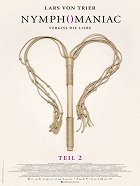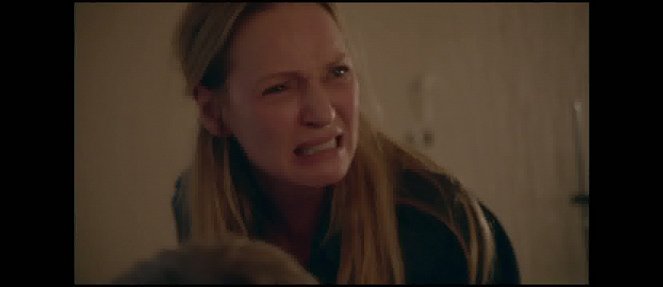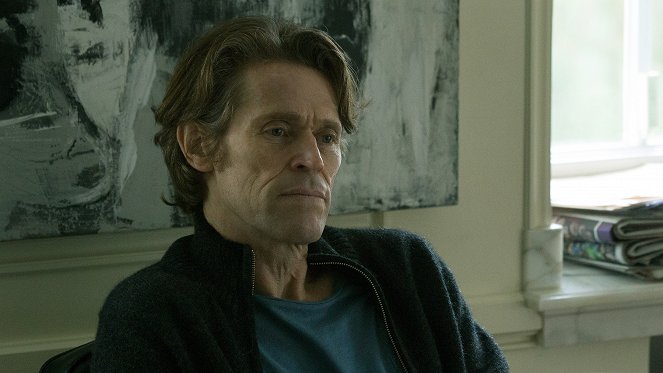Directed by:
Lars von TrierScreenplay:
Lars von TrierCinematography:
Manuel Alberto ClaroCast:
Charlotte Gainsbourg, Shia LaBeouf, Stellan Skarsgård, Stacy Martin, Willem Dafoe, Jamie Bell, Connie Nielsen, Mia Goth, Sophie Kennedy Clark (more)VOD (1)
Plots(1)
NYMPHOMANIAC is the wild and poetic story of a woman's journey from birth to the age of 50 as told by the main character, the self-diagnosed nymphomaniac, Joe (Charlotte Gainsbourg). On a cold winter's evening the old, charming bachelor, Seligman (Stellan Skarsgård), finds Joe beaten up in an alley. He brings her home to his flat where he cares for her wounds while asking her about her life. He listens intently as Joe over the next 8 chapters recounts the lushy branched-out and multifaceted story of her life, rich in associations and interjecting incidents. (official distributor synopsis)
(more)Videos (1)
Reviews (9)
After five and a half hours spent with the reruns of both parts, I rank Nymph()maniac: Volume 2 as one of my favorite film experiences. It really is a very entertaining idyll. The alternation of actors in the same roles makes me feel like I’m watching Buñuel, but it's not only in this respect that he is similar to von Trier. Both of them are just making fun of everyone and everything, and I like that. I wasn't pleased at first with the different genre of the second part, compared to the very freewheeling beginning, but the Director's Cut puts this negation entirely behind it. There is up to an hour of new material to see, and this logically provides a new perspective on both the whole and the second half of this black-humored affair. The seemingly strange ideas and messages from the abridged version gain their natural argumentation and their logical place in the plot. I especially appreciate the storyline about abortion, which completes the character of Joe in a brilliant way. On the other hand, I was hoping for more of the new Fido chapter, but apparently, even Lars didn't want to go there anymore. That’s too bad.
()
I have seen and am reviewing only the director’s cut of both parts of Nymph()maniac. For five and a half hours, the narrative about various methods of physical (self-)satisfaction, which is unsatisfying for viewers, confronts the two greatest themes of all Freudian directors – sex and death. The most striking merger of the two occurs during a drastic miscarriage, at the end of which Joe trembles with arousal, and in the chapter with the dying father, whose black-and-white picture and tone of emotional blackmail give such a (pseudo)artistic impression that it is most likely one of von Trier’s many tactics aimed at depriving viewers of what they want. In the course of both films, he employs a disturbing number of diversions, notional parentheses, jumps in time and changes in the style of the narrative in order to evoke a feeling of unease that makes it impossible to unobtrusively construct a story. The film brings to mind Zanussi with its hypermedia-style encyclopaedic layering of information, Buñuel with its thematisation of fetishes and unstable identity, Bergman with the intimate exploration of relationships, and Tarkovsky with its spiritual excitement (including a direct quote from The Mirror). Though this eclectic and intermedia compilation of styles is held together by the framework narrative, I would not call it a coherent form. How could there be a coherent film that is constructed as a dialogue between two seemingly incompatible worldviews (asexual and nymphomaniac) into which von Trier constantly tries to draw the viewer, whether by shattering visual taboos (I have never seen a more graphic depiction of abortion in a film) or by breaking down the fourth wall between fiction and reality (the camera reflected in a mirror, obvious parallels between the provocatively free-thinking views of Joe and von Trier himself). Despite all of the sexual explicitness and the extreme suffering of the female protagonist, the treatment of the female body seemed less exploitative to me than in, for example, Blue Is the Warmest Colour. Even though the woman becomes a sexual object several times, especially in the first part, and through most of the film her happiness depends on the man’s stamina, availability and abilities, her depiction elicits pain, compassion and disgust more frequently than pleasant feelings. In this context, the most beneficial scene of the director's cut may be the aforementioned abortion, which, with an openness that I believe will be particularly unpleasant for men, demonstrates throughout both films the intensified forms of defending a woman’s right to decide what she does with her own body. Showing us what we do not want to see is closely connected with consideration of that which we do not want to think about. In my opinion, such a provocation makes sense, like Nymph()maniac as a whole. 75% for part I, 80% for part II.
()
The second part of Nymphomaniac starts as boring to give you a punch in the gut at the ending. Shia LaBeouf delivers an excellent performance, and Stellan Skarsgård’s acting remains solid. All the actors are without reproach, actually. We even see more of Charlotte Gainsbourg instead of her younger self played by Stacy Martin. Charlotte makes quite an impression with her nipples, which I’ll probably never forget. You don’t get to see nipples as pert as hers in movies much, if you see them at all. What is worse, however, is that Lars von Trier continued his episodic, meaningless narration, which is boring in places, interesting in others and way too philosophical in yet other moments. And this keeps going on until the moment when Stellan convinces you of something you would be better not knowing. After these almost four hours, the ending is a blow to a soul of every feeling viewer. I’m giving this film one star because Lars filmed it quite skillfully. It can’t be denied that he’s a good director, but all the rest in this film is pure suffering.
()
My enthusiasm from the first Nymphomaniac can be summed up with the fact that I didn’t run to the cinema for the second part and waited for it without much interest for four months. And with similar lack of interest I spent two hours watching it, during which I looked at my watch more often that it would be healthy. There is something there, of course, Trier doesn’t make stupid empty stuff, and the climax is quite vibrant, but this time, the rules of his game didn’t work on me.
()
We left the comedy part behind us and now we get the sad part. So the viewer isn’t entertained, but he’s still curious. Of course, there’s a touch of S+M in the movie, but it’s an act of despair, not lust, and so the controversy somehow fades. The story of Fido’s life was certainly worth telling and I really liked that scene with the tree. The worst tasteless slap in the face of the whole story is the ending which more or less ruins the catharsis and doesn’t shock but revolts. It seems very forced. Or the loose ends with Jamie Bell and Willem Dafoe. Is it Lars’s work or the censor’s? Shame, maybe the director’s cut will make more sense. Hey Joe.
()



Ads